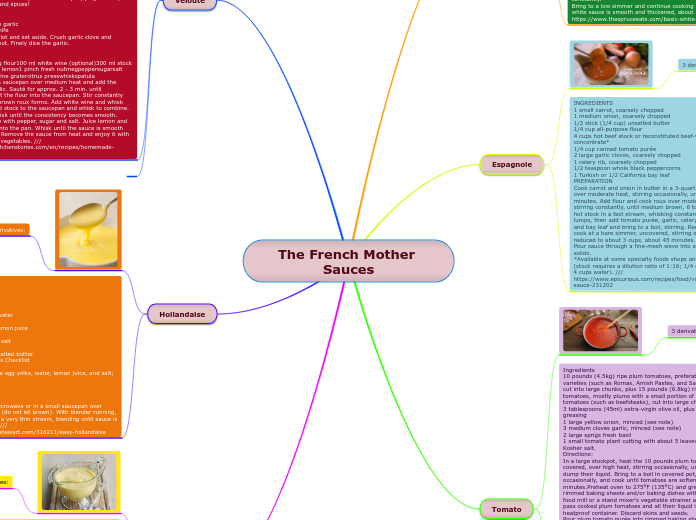Cooking
Cooking, also known as cookery or professionally as the culinary arts, is the art, science and craft of using heat to make food more palatable, digestible, nutritious, or safe. Cooking techniques and ingredients vary widely, from grilling food over an open fire, to using electric stoves, to baking in various types of ovens, reflecting local conditions.
Principles of Good Cooking
Whether you are just starting out in the kitchen or have been cooking for years, it is important to have a strong foundation in the principles of cooking.
Patience
When it comes to cooking, patience is a virtue that cannot be overlooked. While it may be tempting to rush through a recipe or try to speed up the cooking process, the extra time and care that you put into your dishes can make a huge difference in the final outcome. For example, a tasty stew requires time to braise the meat and cook the vegetables to perfection, and this process cannot be rushed. On the other hand, a rushed and poorly prepared stew will not have the same depth of flavour and overall appeal.
Colour = Flavour
The Maillard reaction, also known as browning, is a chemical reaction that occurs between amino acids and sugars when food is cooked at high temperatures. This reaction is what gives food a browned, caramelized appearance and a deeper, more complex flavour.
Open The Spices
Spices can be an integral part of any dish and can greatly enhance the flavour profile. It is important to think of spices as a raw ingredient, much like a carrot, as they can be transformed through cooking.
Paprika
Paprika is a spice made from ground dried peppers, specifically Capsicum annuum varieties such as sweet peppers, bell peppers, or chili peppers.
Coriander
Coriander is a versatile herb that is widely used in cooking around the world. It comes from the Coriandrum sativum plant, which belongs to the parsley family.
Salt
Salt is a fundamental seasoning and preservative that plays a crucial role in cooking and food preservation.
Black Pepper
Black pepper is a versatile spice that adds a distinct flavor and aroma to dishes.
Seasoning Is Key
Proper seasoning is crucial in bringing out the full flavour of your dishes. It’s not just about adding salt and pepper until it tastes good to you, although that’s certainly a good starting point.
Balance
Ideally, no one flavour should overpower the others. There may be one main flavour, with the others supporting it, but all flavours should work together seamlessly. To achieve a balanced dish, it is essential to taste your food as you go and make adjustments as needed.
Kitchen Equipment
The items on this list are perfect for cooks who are just starting out in one way or another.
Spoons
A spoon is a utensil consisting of a shallow bowl (also known as a head), oval or round, at the end of a handle.
Ice Cream Spoon
Teaspoon
Tablespoon
Bowls
A bowl is a typically round dish or container generally used for preparing, serving, storing, or consuming food.
Dessert Bowl
Soup Bowl
Salad Bowl
Mixing Bowl
Measuring Cups
A measuring cup is a kitchen equipment used primarily to measure the volume of liquid or bulk solid cooking ingredients such as flour and sugar, especially for volumes from about 50 ml upwards.
A Large Baking Dish
A casserole is a kind of large, deep pan or bowl used for cooking a variety of dishes in the oven; it is also a category of foods cooked in such a vessel.
Ceramic Baking Dish
Casserole Dish with Lid
Square Baking Dish
Pans
There is a great variety of cookware and bakeware in shape, material, and inside surface. Some materials conduct heat well; some retain heat well. Some surfaces are non-stick; some require seasoning.
Grill Pan
Saucepan
Frying Pan
A Cutting Board
A cutting board (or chopping board) is a durable board on which to place material for cutting.
Plastic Cutting Boards
Wooden Cutting Boards
National Cuisines
A national dish is a culinary dish that is strongly associated with a particular country.
Culinary Innovations
When all is said and done, it’s all about the food. CulinArt is a “Food First” company whose culinary professionals emphasize, and are trained, to produce meals from fresh, raw ingredients.
Challenges and Future Trajectory
Despite these advancements, challenges persist. Consumer acceptance, regulatory frameworks, and ethical considerations surrounding genetically modified organisms (GMOs) and artificial additives remain contentious issues.
Sustainability at its Core
Food technology is instrumental in addressing sustainability concerns. Vertical farming, hydroponics, and aeroponics are redefining agricultural practices, minimizing land usage and water consumption while maximizing yield.
Nutrition Enhancement
The quest for nutritious yet flavorful food has led to remarkable strides. Through fortification and bioengineering, food technologists are enriching products with essential vitamins, minerals, and proteins.
Taste Redefined
Food technology has redefined the boundaries of taste. From plant-based meat alternatives that mimic the texture and flavor of traditional meats to lab-grown alternatives offering a sustainable protein source, innovation is revolutionizing our palate.
Culinary Customs and Rituals
Culinary tradition as a cultural heritage has a very important role in maintaining the identity of a nation and society. Culinary is not only about the taste and satisfaction of eating but also about stories, history, values, and unique techniques passed down from generation to generation.
Traditional Dishes
Traditional foods are foods and dishes that are passed on through generations or which have been consumed for many generations.
Dishes in Vinnytsia
- Holubtsi: Cabbage rolls stuffed with a mixture of rice and minced meat, cooked in a tomato-based sauce.
- Deruny: Potato pancakes fried until crispy and golden brown, served with sour cream or applesauce.
- Salo: Salted pork fatback, often served thinly sliced and eaten with bread, garlic, and pickles.
Dishes in Ukraine
The peculiar features of traditional Ukrainian food have been forming over centuries. The neighboring countries, climate conditions, rich soil and hard-working locals have influenced the complexity of the dishes. Ukrainian dishes are generously flavored (with garlic often the main seasoning) and, despite the contradictory tastes being used, come together in a harmonious blend.
World Cuisines
A cuisine is a specific set of cooking traditions and practices, often associated with a specific culture or region.
French
Cheese and wine are a major part of the cuisine. They play different roles regionally and nationally, with many variations and appellation d'origine contrôlée (AOC) (regulated appellation) laws.
Chinese
Chinese cuisine has profoundly influenced many other cuisines in Asia and beyond, with modifications made to cater to local palates. Chinese food staples such as rice, soy sauce, noodles, tea, chili oil, and tofu, and utensils such as chopsticks and the wok, can now be found worldwide.
Italian
Italian cuisine is a Mediterranean cuisine consisting of the ingredients, recipes and cooking techniques developed in Italy since Roman times and later spread around the world together with waves of Italian diaspora. Some of these foods were imported from other cultures. Significant changes occurred with the colonization of the Americas and the introduction of potatoes, tomatoes, capsicums, maize and sugar beet—the latter introduced in quantity in the 18th century. It is one of the best-known and most appreciated gastronomies worldwide.









